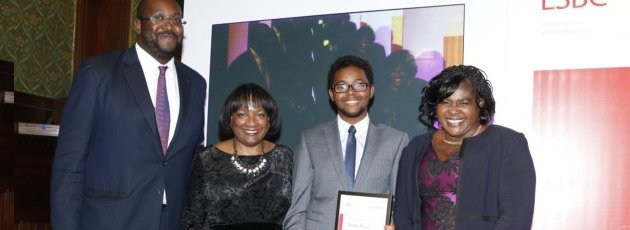- Home
- News & Blogs
- About Us
- What We Do
- Our Communities
- Info Centre
- Press
- Contact
- Archive 2019
- 2015 Elections: 11 new BME MP’s make history
- 70th Anniversary of the Partition of India
- Black Church Manifesto Questionnaire
- Brett Bailey: Exhibit B
- Briefing Paper: Ethnic Minorities in Politics and Public Life
- Civil Rights Leader Ratna Lachman dies
- ELLE Magazine: Young, Gifted, and Black
- External Jobs
- FeaturedVideo
- FeaturedVideo
- FeaturedVideo
- Gary Younge Book Sale
- George Osborne's budget increases racial disadvantage
- Goldsmiths Students' Union External Trustee
- International Commissioners condemn the appalling murder of Tyre Nichols
- Iqbal Wahhab OBE empowers Togo prisoners
- Job Vacancy: Head of Campaigns and Communications
- Media and Public Relations Officer for Jean Lambert MEP (full-time)
- Number 10 statement - race disparity unit
- Pathway to Success 2022
- Please donate £10 or more
- Rashan Charles had no Illegal Drugs
- Serena Williams: Black women should demand equal pay
- Thank you for your donation
- The Colour of Power 2021
- The Power of Poetry
- The UK election voter registration countdown begins now
- Volunteering roles at Community Alliance Lewisham (CAL)
London’s educational success: BME parents
Some researchers are baffled as to why impoverished families in London continue to academically outperform other students around the country.
The turnaround in the capital’s schools, where disadvantaged students now outperform those in the rest of the country after years where they lagged behind, has been the subject of intensive research, in the hope it can be replicated elsewhere.
Some point to policies such as the London Challenges, others to either dynamic schooling heads or academies. But the one factor most of this research ignores is the BME parents who pride education above everything else to ensure their child can have a better life than they had. Anecdotal evidence is abound in regards to African, Asian, Caribbean and Chinese parents spending the bulk of their disposable income on their child’s private education. But these results are about poorer families producing excellent school grades.
If the researchers want answers they need look no further than Diane Abbotts Black London school awards to find some of the answers.
At her events hundreds of parents bring their children to the awards ceremony, and there we listen to the most amazing stories of families fleeing war, poverty and or dealing with inner city gun crime and violence. These parents sit down with their children to study, encourage and where necessary to push their offspring to be the best they can be.
One researcher in particularly is Simon Burgess, an economics professor at Bristol University, has suggested the London advantage – and similar success in schools in Birmingham and Manchester – is due to the ethnic composition of pupils.
He’s right of course. There is one state school that I went to visit recently, albeit just outside London, that recognises this diversity premium and therefore has it as its school ethos: The Anglo-European School in Ingastone encourages mixed heritage and multilingual families from all around London to apply to their school. This teeming diversity from parents who care a great deal quickly becomes a factor in the schools success in both core areas such as maths, English, biology, chemistry etc, but also languages. Many often leaving their school speaking four languages, including manderin.
There is one caveat to this remarkable educational success. Having jumped through all the academic hoops BME disadvantaged pupils are put through, they are still more likely to be either unemployed or in low paid jobs.
So, yes, let’s celebrate and expand the educational story, but let’s also ensure these bright, brilliant minds can put their talent to great use.
Simon Woolley
